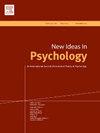Doing things intentionally: Probability raising and control
IF 2.9
3区 心理学
Q2 PSYCHOLOGY, EXPERIMENTAL
引用次数: 0
Abstract
Intentionality judgments can depend on probability raising—people are more likely to see a desired outcome as intentional if the agent who produced it did something to increase its odds. However, intentionality also depends on related factors such as the agent's skill, ability, and control over the outcome. In three experiments (total N = 1074), we investigated how probability raising relates to these factors, and whether it makes distinct contributions to judgments of intentionality. Participants saw vignettes where an agent got a winning ball from a lottery machine. In all experiments, participants gave higher ratings of both intentionality and control in conditions where the agent increased her odds of success than in conditions where she did not. This pattern suggests that probability raising and control are closely linked. The findings of our third experiment, though, also suggest that probability raising may uniquely contribute to attributions of intentionality. In this experiment, the agent received a winning ball after taking an action that unpredictably either increased or decreased her odds of success. Participants gave higher intentionality ratings when this action happened to increase the odds. But participants also showed this pattern when rating control, even though the agent's control did not vary across conditions. These results suggest that probability raising contributes to intentionality even when control does not, and moreover suggest that people may use probability raising to inform attributions of control. However, we also discuss the possibility that control and probability raising are not distinct, and amount to the same thing.
有意识地做事:提高和控制概率
意向性判断可以依赖于概率的提高——如果产生预期结果的主体做了一些增加其概率的事情,人们更有可能将其视为有意的。然而,意向性也取决于相关因素,如代理的技能、能力和对结果的控制。在三个实验(总N = 1074)中,我们研究了概率提高与这些因素的关系,以及它是否对意向性的判断有明显的贡献。参与者看到了一个小插曲,一个经纪人从彩票机里拿到了一个中奖的球。在所有的实验中,参与者对代理人增加成功几率的情况下的意向性和控制力的评分都高于代理人没有增加成功几率的情况。这种模式表明,提高概率与控制密切相关。然而,我们第三个实验的发现也表明,概率的提高可能对意向性的归因有独特的贡献。在这个实验中,代理在采取了一个不可预测地增加或减少她成功几率的行动后,收到了一个获胜球。当这种行为发生时,参与者给出了更高的意向性评分,以增加几率。但参与者在评级控制时也表现出这种模式,即使代理人的控制在不同条件下没有变化。这些结果表明,概率提高有助于意向性,即使控制没有,而且还表明人们可能使用概率提高来告知控制的归因。然而,我们也讨论了控制和提高概率并非泾渭分明的可能性,它们等同于同一件事。
本文章由计算机程序翻译,如有差异,请以英文原文为准。
求助全文
约1分钟内获得全文
求助全文
来源期刊

New Ideas in Psychology
Multiple-
CiteScore
4.80
自引率
3.80%
发文量
37
期刊介绍:
New Ideas in Psychology is a journal for theoretical psychology in its broadest sense. We are looking for new and seminal ideas, from within Psychology and from other fields that have something to bring to Psychology. We welcome presentations and criticisms of theory, of background metaphysics, and of fundamental issues of method, both empirical and conceptual. We put special emphasis on the need for informed discussion of psychological theories to be interdisciplinary. Empirical papers are accepted at New Ideas in Psychology, but only as long as they focus on conceptual issues and are theoretically creative. We are also open to comments or debate, interviews, and book reviews.
 求助内容:
求助内容: 应助结果提醒方式:
应助结果提醒方式:


